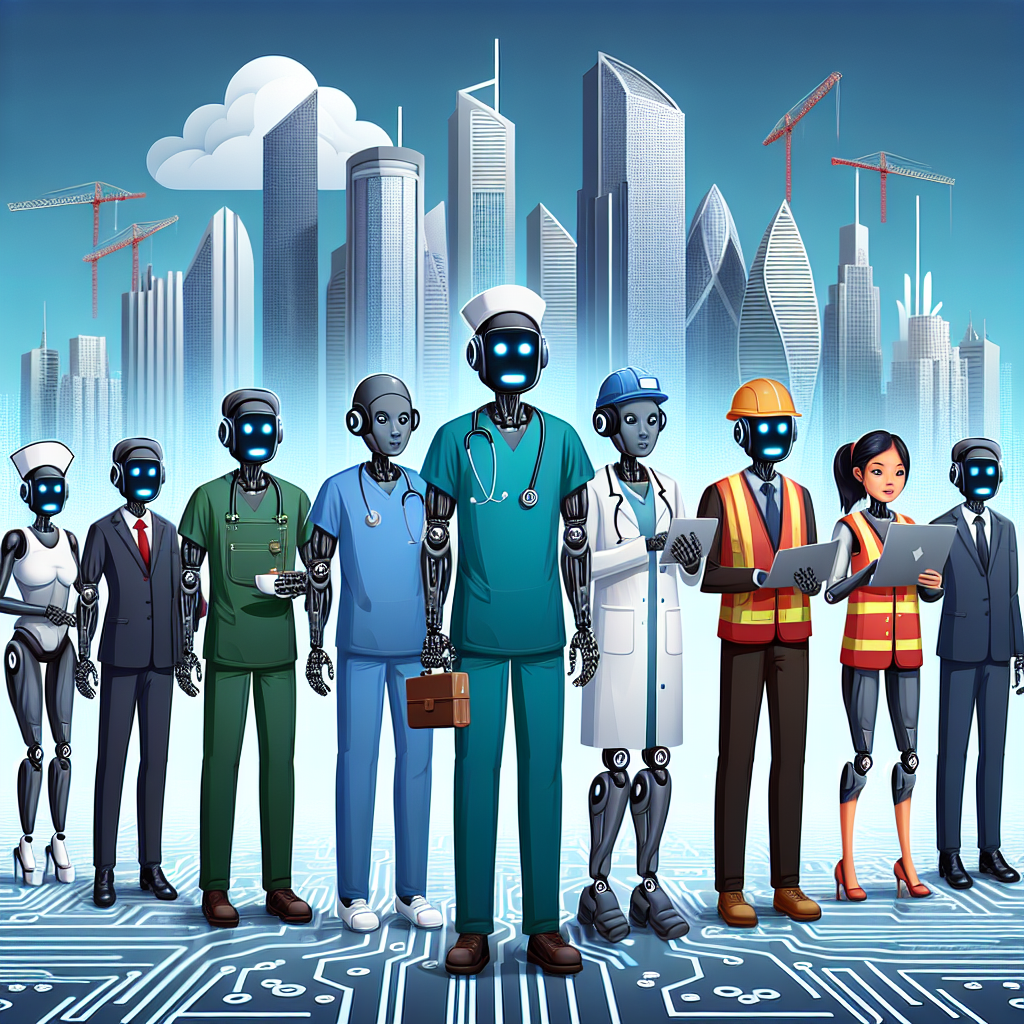In recent years, the rapid advancement of technology has triggered what many now refer to as the Automation Revolution. This phenomenon has not only transformed the way businesses operate but has also entirely reshaped the job market. While the fear of job displacement due to automation is palpable, it is important to recognize that many industries are adapting and evolving, leading to new job opportunities. In this article, we will explore which sectors are currently hiring in response to automation trends and the types of roles becoming available.
1. Information Technology (IT)
As the backbone of the Automation Revolution, the IT sector is experiencing unprecedented growth. With the rise of artificial intelligence (AI), machine learning, and data analytics, there is a pressing demand for skilled professionals. Companies need data scientists to analyze vast datasets, software developers to create and maintain automation tools, and cybersecurity experts to protect automated systems from threats. Additionally, roles such as AI ethicists and automation specialists are emerging, focusing on the responsible integration of automated technologies.
2. Manufacturing
The manufacturing industry has long relied on automation to enhance productivity and efficiency. However, the recent advancements in robotics and smart manufacturing technologies are creating new opportunities. Skilled professionals are needed to design, program, and maintain these advanced systems. The muscle, once the hallmark of this industry, is giving way to roles that require a blend of technical expertise and engineering acumen, such as robotics engineers, automation technicians, and systems integrators. There’s also increased demand for quality control experts who can work alongside automated processes to ensure output remains consistent.
3. Healthcare
Healthcare is another sector experiencing transformative changes due to automation. Technological advancements such as telemedicine, robotic surgery, and AI-powered diagnostics are improving patient care and operational efficiencies. This has led to a growing need for health informatics specialists, telehealth coordinators, and medical coding professionals who can navigate the intersection of technology and patient care. Moreover, with the continuous focus on patient data security, compliance officers with a background in both healthcare and IT are in high demand.
4. Logistics and Supply Chain Management
E-commerce growth and shifts in consumer behavior are driving the logistics industry towards automation. Automated warehousing and logistics solutions, such as drones and autonomous delivery vehicles, are becoming more prevalent. Companies require supply chain analysts who can interpret data generated by automated systems, as well as logistics coordinators who can manage operations enhanced by these technologies. The rise of automation in this sector is also creating opportunities for skilled technicians who can troubleshoot and maintain automated systems and machinery.
5. Finance and Banking
The finance industry is undergoing a significant transformation with the adoption of automation through FinTech innovations. Automated processes in areas such as trading, asset management, and compliance are becoming standard practice. Roles such as financial analysts, risk assessment specialists, and regulatory compliance officers are in high demand as companies look for professionals who can leverage automation tools to make informed decisions. Additionally, the need for blockchain developers and data security experts is rising, as financial institutions invest in automation technologies to maintain competitive advantages.
6. Retail
As consumer preferences shift towards online shopping, retail businesses are increasingly adopting automated systems for inventory management, customer service, and fulfillment processes. The demand for roles in e-commerce management, digital marketing, and customer experience design is surging. Retail workers are also transitioning into positions that require technology proficiency, such as data analysts who can assess consumer behavior and optimize inventory based on automated insights.
7. Education and Training
As the workforce adapts to the new realities of automation, there is a growing need for training and upskilling initiatives. Educational institutions and corporate training organizations are hiring instructional designers, e-learning specialists, and training coordinators who can develop programs to educate employees on new technologies and operational processes. This sector is not just focused on teaching technical skills but is also emphasizing soft skills—such as critical thinking and emotional intelligence—that will remain valuable in an automated world.
Conclusion
While the Automation Revolution may instill fear of job loss in many workers, it is essential to recognize the opportunities that are arising across various industries. With the right skills and education, there are myriad avenues for employment that did not exist a decade ago. The key for current and future workers lies in adaptability, continuous learning, and embracing technological advancements. As industries evolve, those who proactively seek to enhance their skills will find themselves at the forefront of this thrilling transformation, ready to seize the job opportunities that await.




